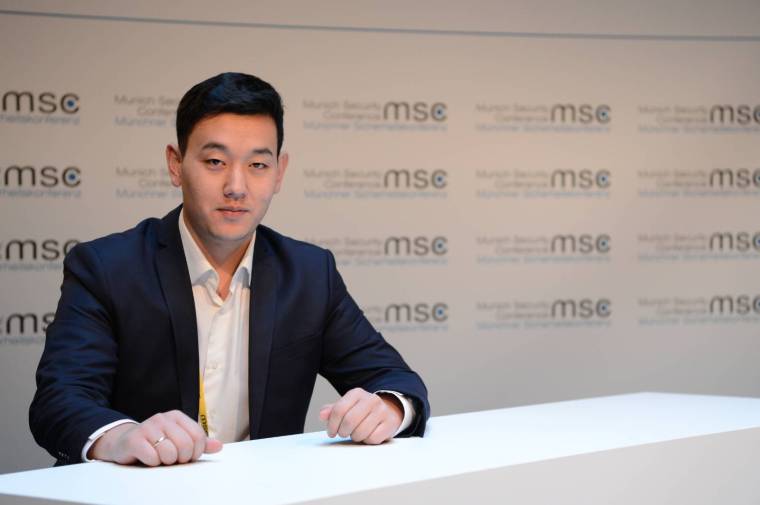Stockholm, May 3, 2021 — Kyrgyz authorities should cease their harassment of journalist Kanat Kanimetov and allow him to work freely and without fear, the Committee to Protect Journalists said today.
On March 11, officers of the Kyrgyz State Committee for National Security (GKNB) summoned Kanimetov, a reporter and presenter with the independent television broadcaster Aprel, to their headquarters in Bishkek, the capital, and interrogated him in connection with a criminal case he previously reported on, according to news reports and the journalist, who wrote about the incident on his Facebook page and spoke to CPJ in a video interview.
Although Kanimetov was summoned as a witness, investigators questioned him as if he was a suspect in a criminal case, but did not accuse him of any specific crimes, according to the journalist and his lawyer, Nurbek Sydykov, who was present with him during questioning, and who spoke to CPJ in a phone interview.
Separately, in early April, police questioned several of Kanimetov’s relatives about his whereabouts and also questioned their neighbors, Kanimetov told CPJ and wrote on Facebook, adding that his relatives were unsure of the exact date of the questioning. The journalist told CPJ that he believed these actions were authorities’ attempts to pressure him in retaliation for his critical news coverage.
Aprel regularly broadcasts material critical of Kyrgyz authorities, and has operated online since its assets were frozen by court order in August 2019, according to reports. The station’s YouTube channel has nearly 200,000 subscribers, and its recent coverage includes frequent criticism of President Sadyr Japarov and of the GKNB and its head.
“Kyrgyz authorities should immediately stop harassing journalist Kanat Kanimetov and members of his family, and ensure he can hold the country’s leadership to account without fear of retribution,” said Gulnoza Said, CPJ’s Europe and Central Asia program coordinator, in New York. “Rather than attempting to intimidate inconvenient journalists, authorities under the newly elected President Sadyr Japarov must realize that criticism and a diversity of views are essential components of the democratic society that they claim to be building.”
During the March 11 questioning, GKNB officers asked Kanimetov about his coverage of a high-profile criminal case, which involved a former presidential candidate; he had reported on the story while working at the state-owned broadcaster KTRK in 2016 and 2017, the journalist told CPJ.
“There is every reason to believe that the GKNB are digging into me too,” Kanimetov wrote on Facebook; he denied that he had any connection to the case beyond his news coverage.
Weeks later, at about 11 p.m. on a night in early April, five police officers arrived at Kanimetov’s childhood home in the town of Balykchy, in the Issyk-Kul region, where his mother and relatives of his deceased father live, he told CPJ. He said the officers threatened to search the premises, and demanded to know Kanimetov’s place of residence, despite the fact that he has been officially registered at an address in Bishkek for over a year, he told CPJ.
Kanimetov said that his relatives were frightened by the experience and did not tell him about it until several weeks later, because they were afraid that their phone calls with him were being monitored.
The officers told the journalist’s relatives that Kanimetov had ignored a court summons, though Kanimetov says that no summons has been served to him since the first interrogation on March 11.
Kanimetov said that police also questioned his relatives’ neighbors, but the neighbors were too scared to tell Kanimetov what they were asked.
Kanimetov told CPJ said that his relatives were shaken by the incident; he described both that episode and the earlier interrogation of him as “links in the same chain” of psychological pressure by the authorities.
“The authorities treat us journalists like we are politicians or something, like we’re trying to take power and sit in their seats,” Kanimetov told CPJ. “When really we are just doing our work, covering stories, giving analysis, and conveying our opinions.”
CPJ emailed the Ministry of Interior of Kyrgyzstan, the State Committee for National Security, and the Issyk-Kul Regional Department of Internal Affairs for comment, but did not receive any replies.
